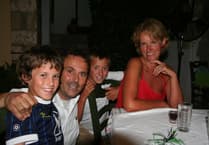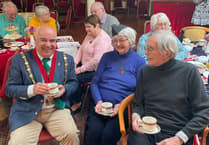Editor
I wonder how many of your readers have, this summer,seen young seagulls wandering through the traffic of Aberystwyth? Or seen their squashed remains on the roadway?
This is a symptom of a problem which is growing worse each year. More and more gulls are nesting in the town, attracted by food which has been provided by us humans, either intentionally or through carelessness. This results in increased contact between gulls and humans, with potential dangers for both.
Studies in various parts of the world now show that gulls have contracted human diseases, including E coli and (in one study)SARS and MRSA, probably by feeding on human waste.
A significant number now carry bacteria which are resistant to antibiotics.
The risk of transmission to humans has yet to be assessed, but the lesson of the pandemics of recent years is that increased contact between humans and wildlife leads to dangers. Sensible precautions should be taken when clearing up gull droppings, which are a particular problem wherever young seagulls wander about.
I appeal to your readers not to feed gulls anywhere close to human habitation, and not to give them bread (they need protein, not carbohydrate). The RSPCA advises us to avoid widespread feeding of gulls, particularly in public areas. The more people feed gulls in towns, the worse the problem will get, and the more birds will end up dead on our roads.
Laurie Wright Aberystwyth
Have your say on the local issues affecting you - email [email protected] or join in the conversation on our Facebook page





Comments
This article has no comments yet. Be the first to leave a comment.